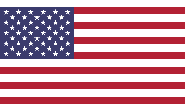Government/Policy

February 26, 2021
USTR Nominee Tai Touts Section 232, USMCA
Written by Michael Cowden
U.S. Trade Representative (USTR) nominee Katherine Tai expressed support for Section 232 tariffs on imported steel and aluminum, characterizing the duties as a “legitimate tool in the trade toolbox.”
The prospective top U.S. trade negotiator also signaled that the U.S.-Mexico-Canada Agreement (USMCA) – the replacement to the North American Free Trade Agreement (Nafta) – would be enforced vigorously by the Biden administration.
Both trade actions were important achievements for the administration of former President Donald Trump.![]()
“With respect to the 232 tariffs on steel and aluminum. … We have to acknowledge that we have overall a very significant global marketplace problem in the steel and aluminum markets that are driven primarily by China’s overcapacity,” Tai said. “But it’s not just a China problem.”
Tai made the comment during a Senate confirmation hearing earlier in the week. Her words echoed the position of the United Steelworkers union, domestic steelmakers and lobbying groups for them, which have assailed what they see as excess steel production capability not only in China but also in emerging markets in Southeast Asia, India and Turkey.
While expressing support for tariffs, Tai also said the U.S. would need to work to rebuild international alliances, rejoin international institutions and build a “united front” with its allies on trade issues.
The comments appeared to reference the Trump administration’s spurning of international groups such as the World Trade Organization and its unilateral approach to trade relations with China.
“China is simultaneously a rival, a trade partner and an outsized player whose cooperation we’ll also need to address certain global challenges” such as climate change, Tai said. “We must remember how to walk, chew gum and play chess at the same time.”
Closer to home, Tai said it was important to protect and enforce bi-partisan trade deals such as USMCA.
“Too often in the past, Congress and the administration came together to finalize and pass a trade agreement. But then other urgent matters arose and we all moved on,” Tai said “The United States-Mexico-Canada agreement is a uniquely bipartisan accomplishment that must break that trend. …. We must all continue to prioritize its implementation and success.”
Domestic steel interests have hailed USMCA for policies such as more stringent domestic content requirements. The successful negotiation of the trade pact led to Section 232 tariffs being lifted from Canada and Mexico in 2019.
By Michael Cowden, Michael@SteelMarketUpdate.com







